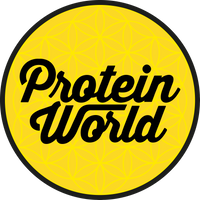
LINKS BETWEEN DIET, DEPRESSION & ANXIETY
‘What’s (served) up doc?!’ This is a question we’re predicting will be asked more and more as the link between diet and mental health becomes better understood. It’s estimated that 1 in 4 people will experience some form of mental health illness in their lifetime; depression and anxiety being the most common types. Whilst there's no specific diet that can cure depression or anxiety, following some general principles may help ease symptoms. Read on to find out more.
Antioxidants
Antioxidants are important for preventing damage to cells, including those in the brain. The most common antioxidants in our diet are Vitamin C (found in berries, green leafy veg and citrus fruit) and Vitamin E (found in nuts, seeds and avocado). Worried you’re not getting enough? Check out our Maximum Vitamin C capsules containing a unique combination of ingredients to support a healthy immune system, collagen production and help fight fatigue! The options are endless!


Vitamins and minerals
Studies have reported a link between low selenium and poor mental health. It's recommended adults consume 55 micrograms a day; eat two brazil nuts to get your daily dose. Not a fan of nuts? Each serving of our Slender Blend contains a third of your recommended intake of selenium!
Another group of nutrients we’ve added to our Slender Blend, B vitamins, are important in the battle against depression and anxiety. For example, in one large-scale study, those who were deficient in vitamin B9 or B12 tended to have higher rates of depression. Top up on B vitamins by eating legumes, nuts, fruits, dark green vegetables, and lean/low-fat animal products, such as fish and low-fat dairy.
Complex carbs and protein
Complex carbohydrates are important for helping our bodies produce the mood-boosting brain chemical, serotonin. Therefore, swapping simple, processed forms of carbs for wholegrains, fruits, vegetables, and legumes, may help in the management of depression and anxiety. Similarly, foods such as turkey, tuna, and chicken contain an amino acid called tryptophan, which may aid serotonin production.

Fats
So; we have antioxidants, vitamins and minerals, carbs and protein covered; how about fat? Recently, scientists have discovered a link between low intakes of essential omega-3 fatty acids and mental health issues. Therefore, getting enough of these omega-3s in the form of oily fish (anchovy, mackerel, salmon, sardines and fresh tuna) is vital. Whilst the government recommends we consume at least two portions of oily fish each week, the majority of us fall short of this target. An easy way of meeting recommendations is to use a supplement. For example, our omega 3 capsules contain 600mg of the essential omega 3 fatty acids, EPA (eicosapentaenoic acid) and DHA (docosahexaenoic acid), per serving.
Healthy weight
From a general perspective, it's also important to maintain a healthy weight. This is because people who are obese are more likely to become depressed and/or suffer from anxiety, and vice versa. Researchers believe this may be due to changes in hormones. Fortunately, a nutritious diet including the above foods will help you get to and stay at a healthy weight. If you're still experiencing difficulties, it's important to discuss this with your doctor and consult a registered nutritionist for tailored advice and guidance. Our Protein World advisors are all qualified nutritionists and are on hand to give you specific tailored advice if needed.
RECOMMENDED PRODUCTS
OTHER STORIES

LINKS BETWEEN DIET, DEPRESSION & ANXIETY
‘What’s (served) up doc?!’ This is a question we’re predicting will be asked more and more as the link between diet and mental health becomes better understood. It’s estimated that 1 in 4 people will experience some form of mental health illness in their lifetime; depression and anxiety being the most common types. Whilst there's no specific diet that can cure depression or anxiety, following some general principles may help ease symptoms. Read on to find out more.
Antioxidants
Antioxidants are important for preventing damage to cells, including those in the brain. The most common antioxidants in our diet are Vitamin C (found in berries, green leafy veg and citrus fruit) and Vitamin E (found in nuts, seeds and avocado). Worried you’re not getting enough? Check out our Maximum Vitamin C capsules containing a unique combination of ingredients to support a healthy immune system, collagen production and help fight fatigue! The options are endless!

Vitamins and minerals
Studies have reported a link between low selenium and poor mental health. It's recommended adults consume 55 micrograms a day; eat two brazil nuts to get your daily dose. Not a fan of nuts? Each serving of our Slender Blend contains a third of your recommended intake of selenium!
Another group of nutrients we’ve added to our Slender Blend, B vitamins, are important in the battle against depression and anxiety. For example, in one large-scale study, those who were deficient in vitamin B9 or B12 tended to have higher rates of depression. Top up on B vitamins by eating legumes, nuts, fruits, dark green vegetables, and lean/low-fat animal products, such as fish and low-fat dairy.
Complex carbs and protein
Complex carbohydrates are important for helping our bodies produce the mood-boosting brain chemical, serotonin. Therefore, swapping simple, processed forms of carbs for wholegrains, fruits, vegetables, and legumes, may help in the management of depression and anxiety. Similarly, foods such as turkey, tuna, and chicken contain an amino acid called tryptophan, which may aid serotonin production.

Fats
So; we have antioxidants, vitamins and minerals, carbs and protein covered; how about fat? Recently, scientists have discovered a link between low intakes of essential omega-3 fatty acids and mental health issues. Therefore, getting enough of these omega-3s in the form of oily fish (anchovy, mackerel, salmon, sardines and fresh tuna) is vital. Whilst the government recommends we consume at least two portions of oily fish each week, the majority of us fall short of this target. An easy way of meeting recommendations is to use a supplement. For example, our omega 3 capsules contain 600mg of the essential omega 3 fatty acids, EPA (eicosapentaenoic acid) and DHA (docosahexaenoic acid), per serving.
Healthy weight
From a general perspective, it's also important to maintain a healthy weight. This is because people who are obese are more likely to become depressed and/or suffer from anxiety, and vice versa. Researchers believe this may be due to changes in hormones. Fortunately, a nutritious diet including the above foods will help you get to and stay at a healthy weight. If you're still experiencing difficulties, it's important to discuss this with your doctor and consult a registered nutritionist for tailored advice and guidance. Our Protein World advisors are all qualified nutritionists and are on hand to give you specific tailored advice if needed.

- OTHER STORIES -

WATCH CHARLOTTE & CHRIS IN THE PW BAKING BATTLE!
Tensions were high as Geordie Shore’s Charlotte Crosby challenged Love Island’s Chris Hughes to the Protein World Baking Battle! But who was crowned the Slender Baker?








